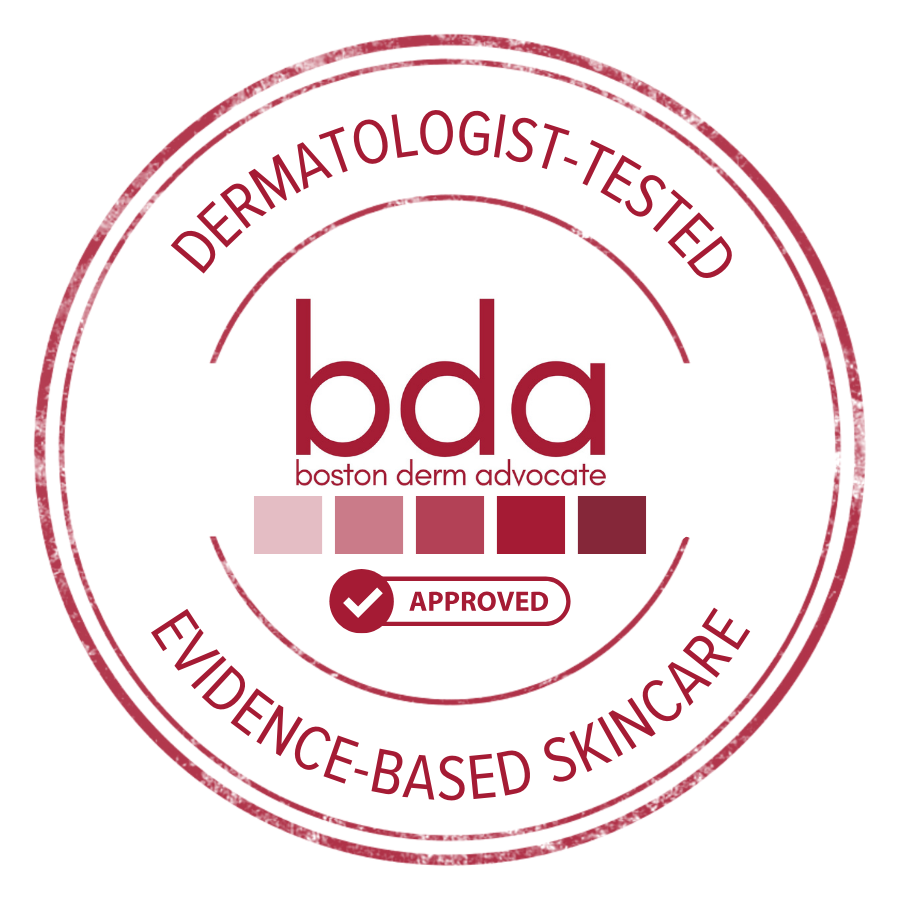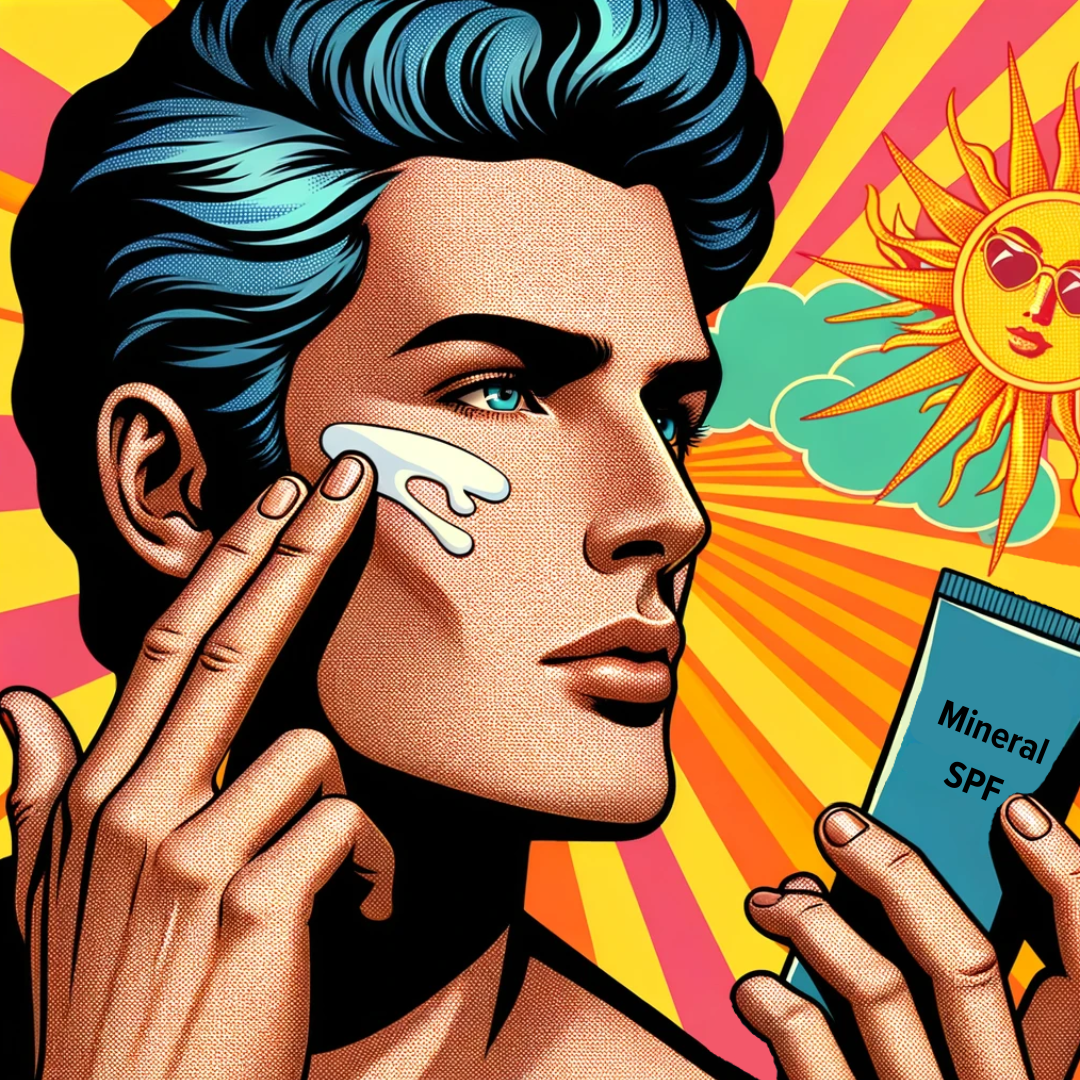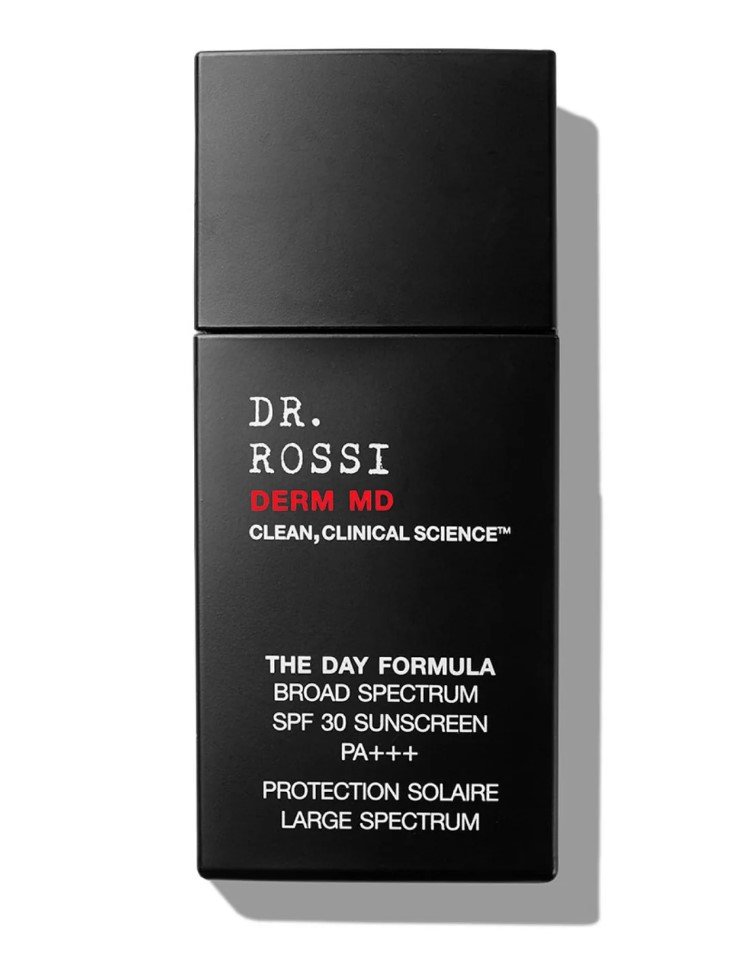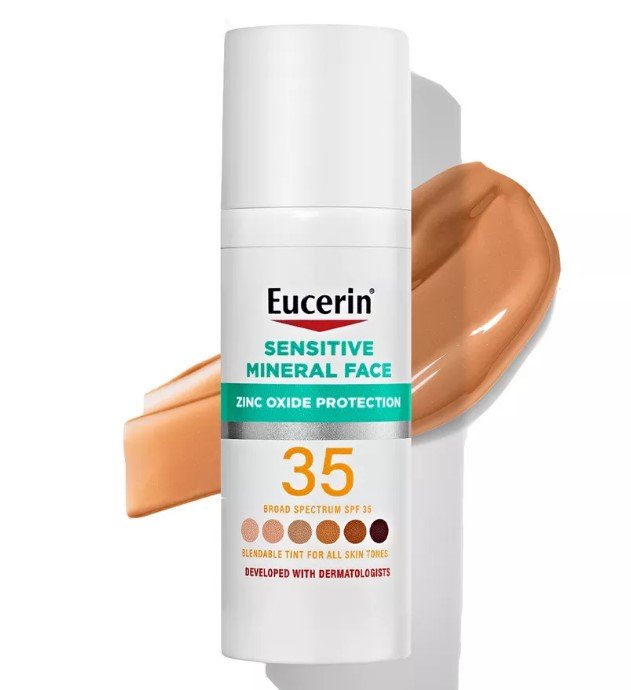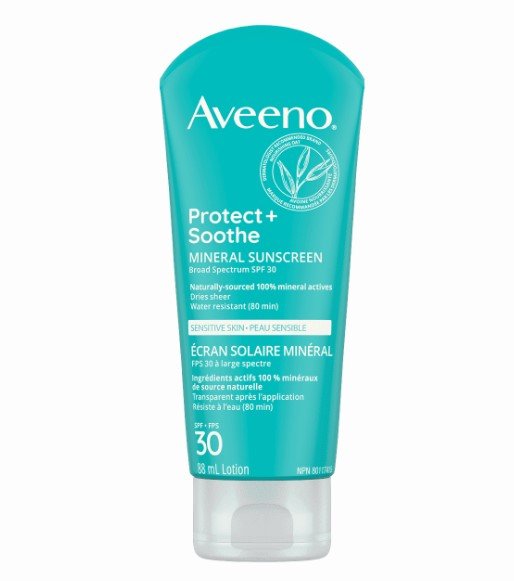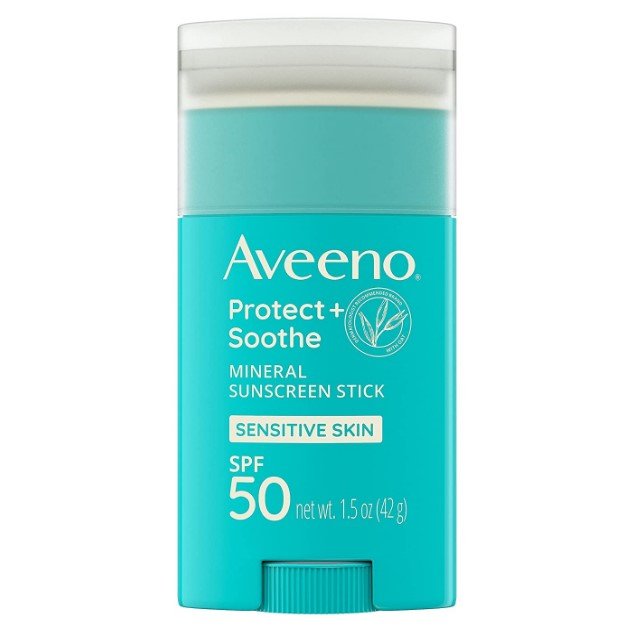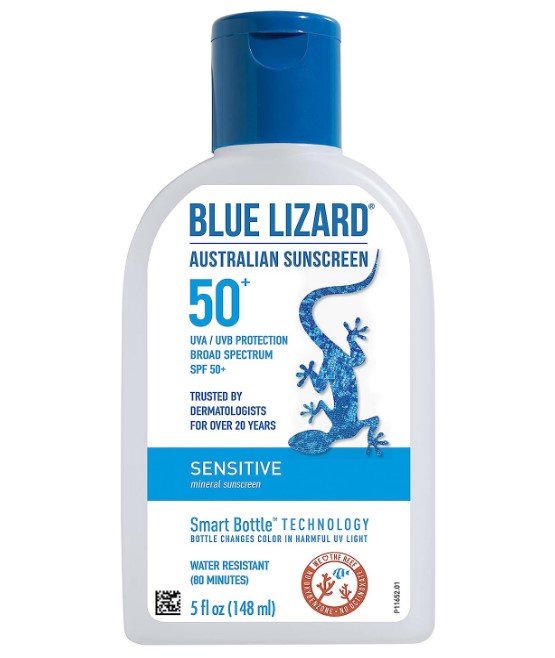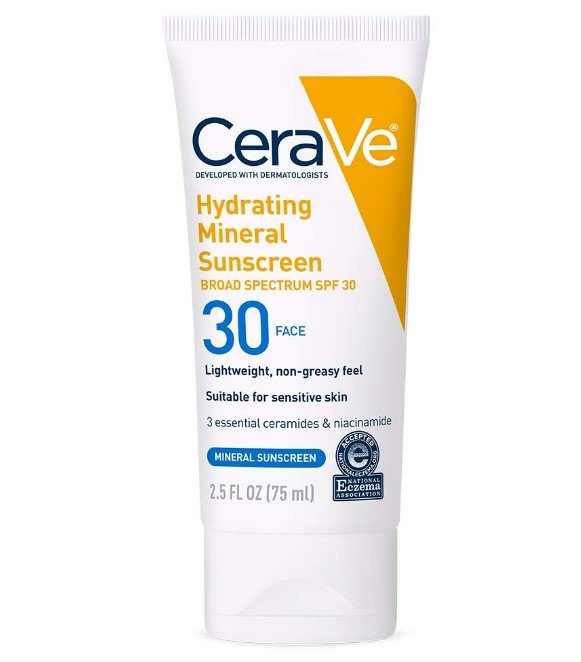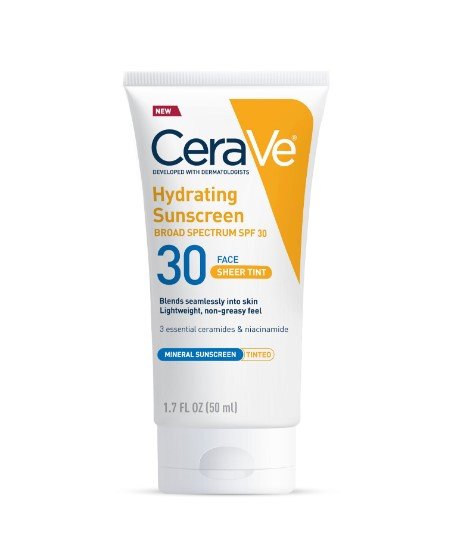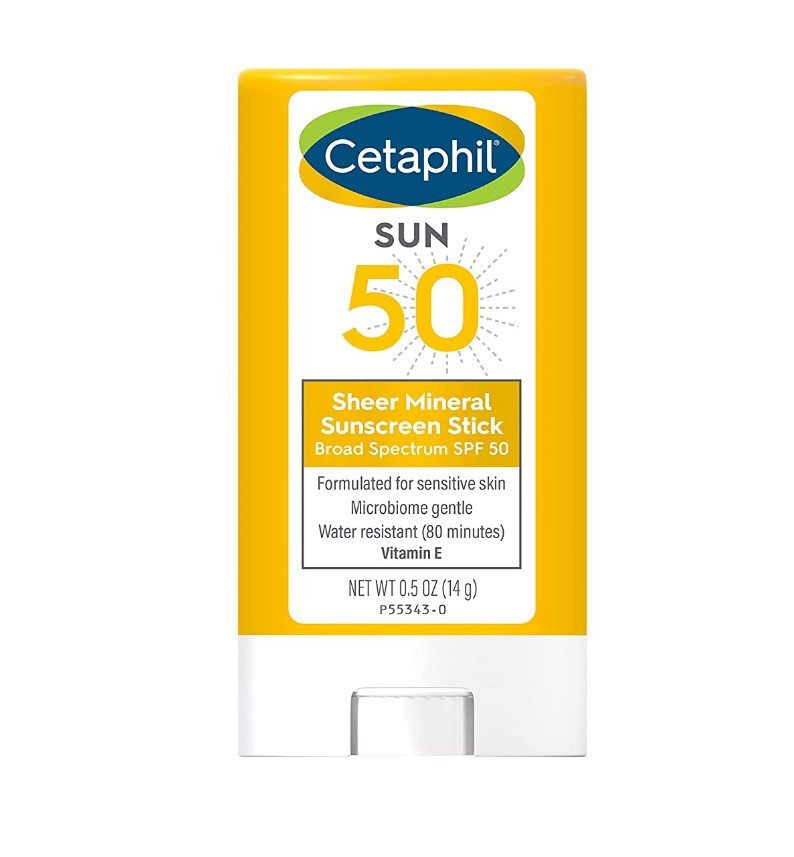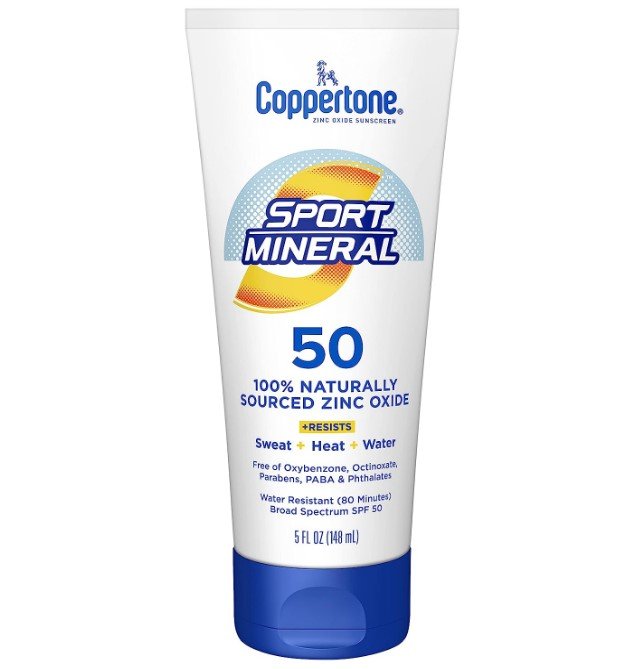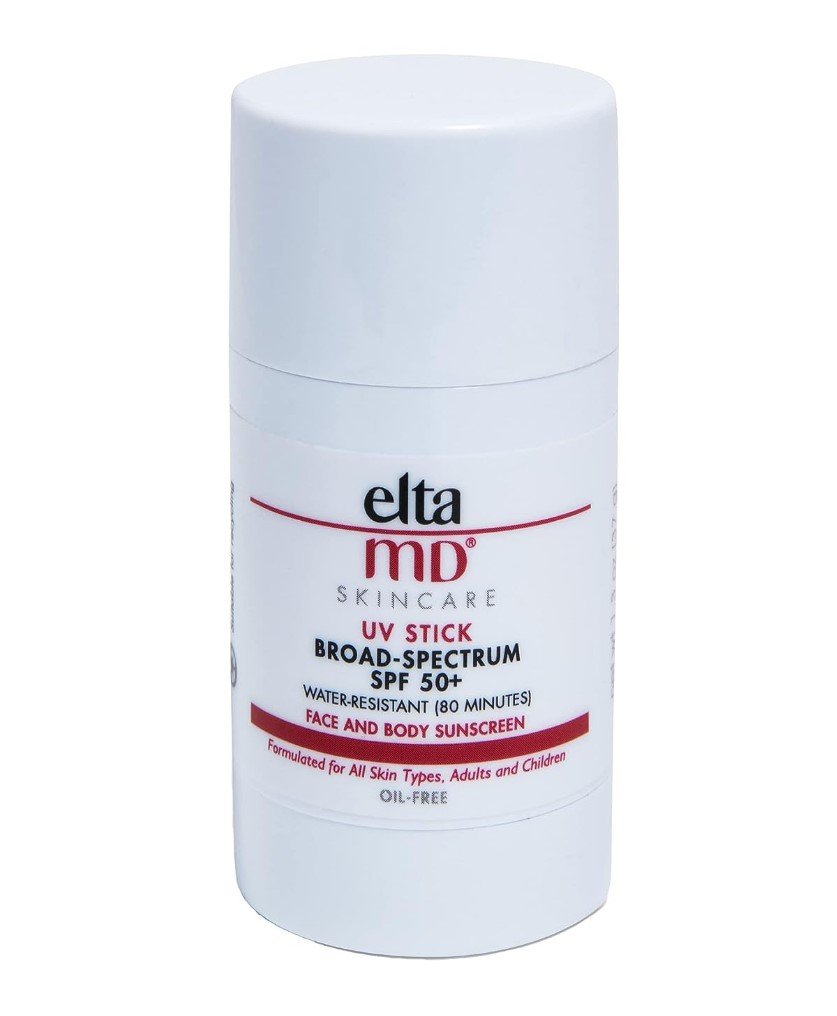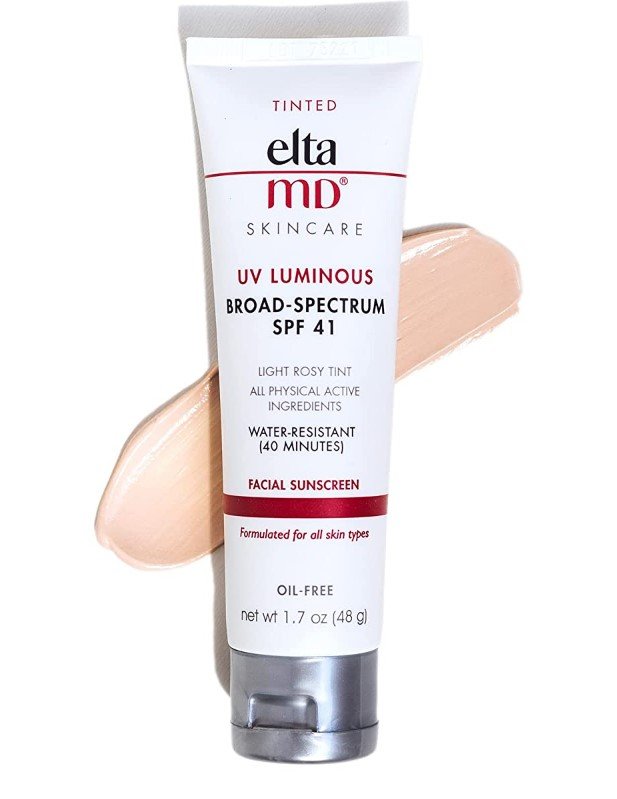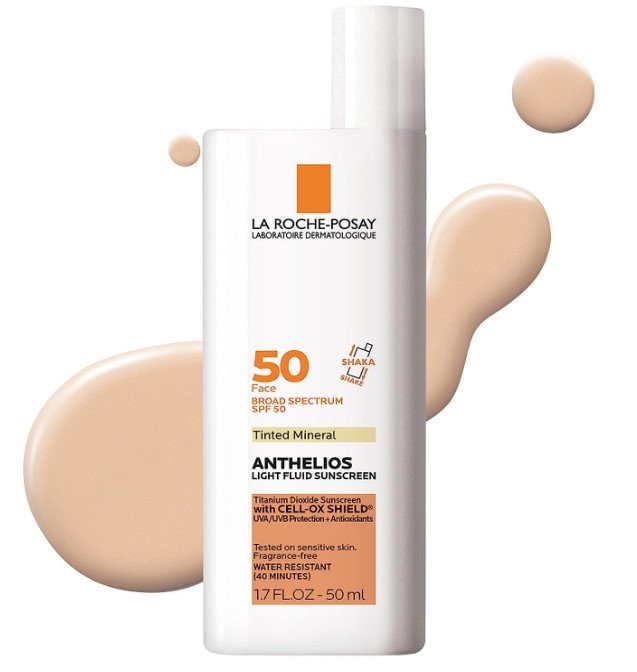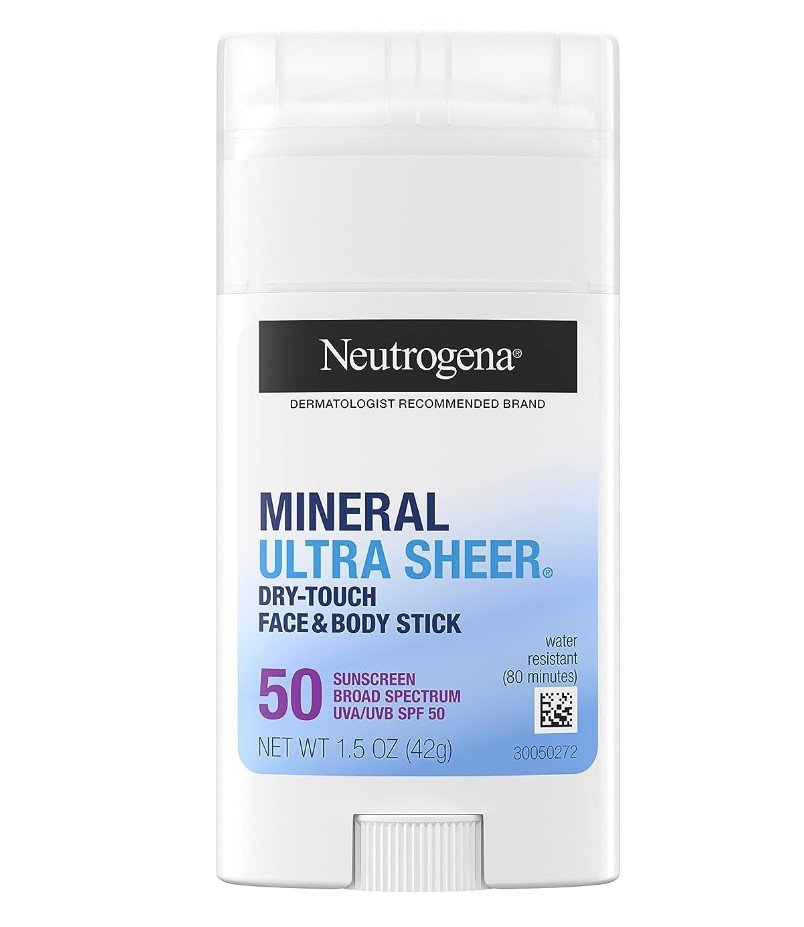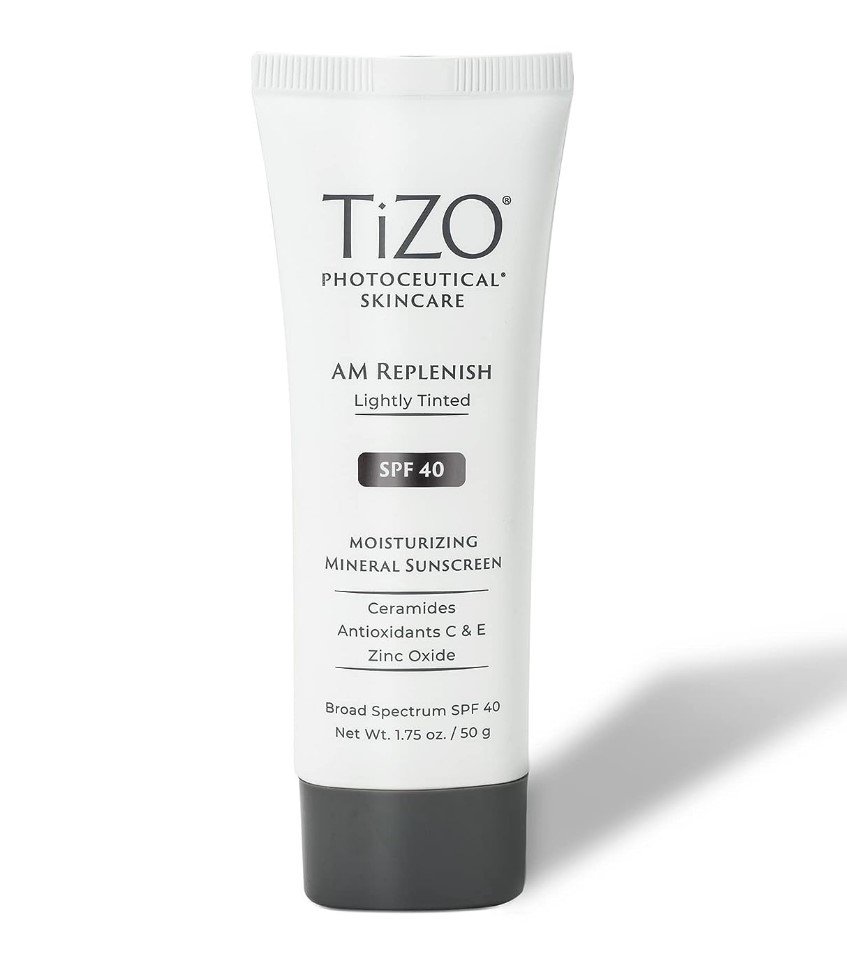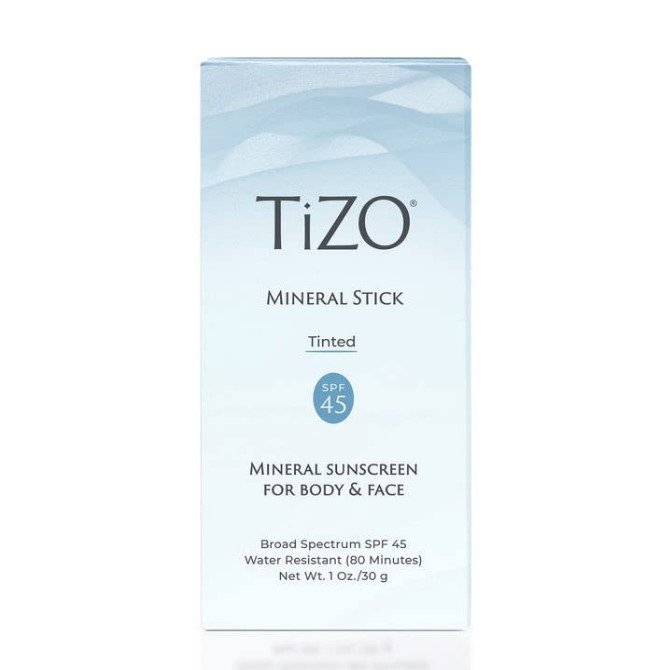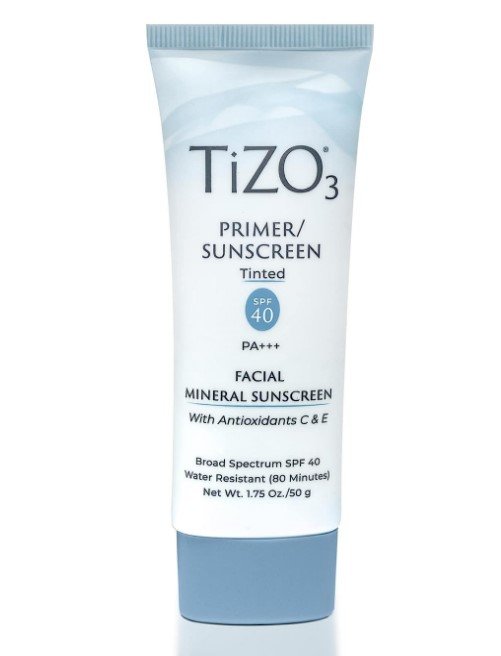Best Mineral Based Sunscreens for the Face Blind Tested by Dermatologists
Our Favorite Tinted and Non-Tinted Mineral Sunscreens by Metrics
Best overall and most well-tolerated
THE DAY FORMULA
BROAD SPECTRUM SPF 30 SUNSCREEN (DR. ROSSI DERM MD)
Why it’s great:
Highest overall rating among 18 mineral sunscreens through blind testing
Contains niacinamide to reduce redness and inflammation
Drawbacks:
None that we experienced
Active Ingredients: Titanium dioxide and niacinamide
Price per unit: $68.60 / FL Oz
SkinSafe rating: Pending
Notable quotes from our dermatologist team:
“Optimal consistency, applies easily - hard to believe it’s not a chemical sunscreen”
“It feels very light and soothing”
Best sun stick & least white cast
ELTA MD UV Stick SPF50
Why it’s great:
Lowest degree of white cast in tested products
Drawbacks:
Suitable for limited body surface areas
Active Ingredients: Zinc oxide
Price per unit: $38/count
SkinSafe rating: A (top allergen free)
Notable quotes from our dermatologist team:
“I like this - might buy it myself”
“Seems to work well on darker skin tones too”
Best tinted mineral sunscreen
ELTA MD UV Luminous SPF 41 Tinted Sunscreen
Why it’s great:
Dermatologist-recommended; light texture with a matte finish; Tinted protection from visible light
Drawbacks:
Mild degree of white cast on darker skin tones
Active Ingredients: Zinc oxide and titanium dioxide
Price per unit: $24.12 / Fl Oz
SkinSafe rating: A+ (highest-allergy free rating by SkinSafe)
Notable quotes from our dermatologist team:
“Tinted, would consider for the face when wearing makeup”
“Seems to be better for those with a pink hue or slightly lighter skin tones”
Best for eczema and acne prone skin
CeraVe SPF 50 Zinc/Titanium Sunscreen with NA, HA, and Ceramides
Why it’s great:
Contains ceramides and niacinamide; good for eczema and acne prone skin
Drawbacks:
Has a soapy smell
Active Ingredients: Zinc oxide, titanium dioxide, niacinamide, ceramides, and hyaluronic acid
Price per unit: $5.28 / Fl Oz
SkinSafe rating: A+ (highest-allergy free rating by SkinSafe)
Notable quotes from our dermatologist team:
“I can see myself using this one daily”
“It does feel very hydrating”
Best for medium and olive toned skin
Eucerin Sensitive Mineral Face SPF 35
Why it’s great:
Great for dry and sensitive skin, seems to be fairly hydrating
Drawbacks:
Seems to have some mild white cast in darker skin tones
Active Ingredients: Zinc oxide
Price per unit: $8.22 / Fl Oz
SkinSafe rating: A (top allergen free)
Notable quotes from our dermatologist team:
“Has a nostalgic smell of the swimming pool”
“Applies fairly easily, good consistency”
Best honorary mention
Hyaestic Mineral Sunscreen SPF 45
Why it’s great:
All around reliable. Applies easily for lighter skin tones.
Drawbacks:
White cast in darker skin tones. Stronger smell.
Active Ingredients: Zinc oxide, titanium dioxide
Price per unit: $22.20 / Fl Oz
SkinSafe rating: Pending
Notable quotes from our dermatologist team:
“Seems to stick very well on the skin”
-
Over time, we have seen a shift in patient preference for sunscreens that are mineral based rather than chemical based. A large part of this is from the notion that chemical sunscreens are absorbed into the bloodstream as demonstrated in prior studies, though the long term significance of this finding is not yet clear. Source.
One challenge of mineral sunscreens is that historically, they have been known to cause ‘white cast’, or a white chalky discoloration when applied on skin tones that are not fair or light. Among other user experience factors, mineral sunscreens can differ substantially from their chemical counterparts, an as a result, patients frequently inquire about the best options for mineral sunscreens.
With this question in mind, we as dermatologists have decided to blindly test 18 popular mineral sunscreens across a range of skin types and skin tones to help you find the optimal option for you. As a bonus, we have also included both tinted and non-tinted options in this test.
-
Product Selection:
We queried Amazon for ‘mineral sunscreen face’ and ‘tinted mineral sunscreens’.
We selected the most popular products that appeared in this search.
We also included products samples that we received at conferences fitting the mineral sunscreen criteria.
We selected the 20 most popular products.
Three products were out of stock at the time of the initial testing.
One product was provided at a subsequent conference and included for subsequent user experience testing with a different team consisting of 2 dermatology residents and 1 dermatology attending.
Product Testing:
Our testing team consisted of 4 subjects: 3 dermatology residents and 1 dermatology attendings located in Boston, Massachusetts. Our skin profiles are as follows:
Normal; Fair-medium with yellow undertones
Combination; Fair with warm undertones
Dry; Dark brown
Dry-sensitive; Fair with pink undertones
We tested the products in a sequential fashion over different areas of our face and our arms. Testing was performed in a blinded manner; the different products were transferred to vials labeled with a deidentified number before being allocated to the subjects.
-
Aveeno Priotect and Soothe Sun Stick
Aveeno Protect and Sooth Mineral Sunscreen SPF30
Blue Lizard SPF 50 Zinc Oxide
Cerave Zinc Oxide SPF30
Cerave Zinc Oxide SPF30 Tinted
Cetaphil SPF50 Sheer Mineral Sun Stick
Coopertone Sport Mineral SPF50 Zinc Oxide
Dr. Rossi SPF30 Titanium Oxide
ELTA MD UV Stick SPF50
Eucerin Sensitive Zinc Oxide
Hyaestic SPF 45 Face Sunscreen
Laroche-Posay Anthelios Tinted SPF50
Neutrogena Mineral Ultra Sheer SPF50
TIZO Mineral Stick SPF45
TIZO photoceutical tinted
TIZO primer/sunscreen SPF40 tinted
Trader Joes SPF 40 Zinc Oxide
UV Luminous Tinted, Elta MD
-
Mineral sunscreens, also known as physical sunscreens, are an important part of a comprehensive skincare routine. Unlike chemical sunscreens that absorb UV radiation, mineral sunscreens act as a physical barrier, reflecting and scattering UV rays away from the skin. This makes them a good choice for individuals with sensitive skin or concerns about the potential irritation caused by chemical sunscreen ingredients.
Mineral sunscreens are made from mineral ingredients, typically zinc oxide and titanium dioxide, which are gentle on the skin and less likely to cause irritation. They provide broad-spectrum protection against both UVA and UVB rays, which are known to contribute to skin aging, sunburns, and an increased risk of skin cancer.
-
While both mineral and chemical sunscreens offer protection against UV rays, there are several compelling reasons to choose a mineral sunscreen:
Gentle on sensitive skin: Mineral sunscreens are less likely to cause skin irritation, making them an excellent choice for individuals with sensitive or reactive skin.
Suitable for pregnancy and breastfeeding: Many dermatologists recommend mineral sunscreens as a safer option during pregnancy and breastfeeding due to the lack of chemical absorption.
Environmentally friendly: Mineral sunscreens are generally considered more environmentally friendly than chemical sunscreens, as they do not contain ingredients that can potentially harm marine life.
Immediate protection: Mineral sunscreens provide protection as soon as they are applied, unlike chemical sunscreens that require time to absorb into the skin.
-
One of the primary concerns with mineral sunscreens is the potential for a white cast or chalky appearance on the skin. However, many modern formulations have addressed this issue, offering tinted and non-tinted options that blend seamlessly into a range of skin tones.
Tinted mineral sunscreens are an excellent choice for those with darker skin tones, as they provide a natural-looking tint that helps neutralize the white cast typically associated with mineral sunscreens. These tinted options can also serve as a lightweight foundation or tinted moisturizer, providing coverage and sun protection in one step.
As a bonus, many tinted sunscreens contain iron oxide which protect against post inflammatory hyperpigmentation, which can be caused by the visible spectrum of light in patients with melanin-rich skin tones
For those with fair or light skin tones, non-tinted mineral sunscreens work well, as long as they are formulated to blend into the skin without leaving a noticeable white cast.
-
When shopping for a mineral sunscreen, there are a few different domains to think about:
SPF rating: Look for a mineral sunscreen with an SPF (Sun Protection Factor) of at least 30 for adequate protection against UVB rays. For extended outdoor activities or those with a higher risk of sun exposure, an SPF of 50 or higher is recommended.
Broad-spectrum protection: Ensure the mineral sunscreen provides protection against both UVA and UVB rays, as both types of UV radiation can contribute to skin damage and an increased risk of skin cancer.
Mineral active ingredients: Check that the sunscreen contains mineral active ingredients like zinc oxide and titanium dioxide, which are responsible for providing physical sun protection.
Non-comedogenic and non-greasy formulas: If you have oily or acne-prone skin, select a mineral sunscreens labeled as non-comedogenic (non-pore-clogging) and non-greasy to prevent breakouts.
Water resistance: For outdoor activities or sweating, go with a water-resistant mineral sunscreen to have long-lasting protection.
-
Apply as the last step: After completing your skincare routine, apply your mineral sunscreen as the final step before makeup or heading outdoors.
Use a generous amount: Apply approximately 1/4 teaspoon for your face and neck, and ensure even coverage.
Reapply every 2 hours or after going in the water: mineral sunscreens can wear off or become less effective over time, so reapplying every two hours is important, especially if you're sweating or swimming.
Layer with other sun protection measures: Mineral sunscreen should be used in conjunction with other sun protection measures, such as wearing protective clothing, hats, and seeking shade when possible.
-
What is face sunscreen and why is it important?
Face sunscreen is a specially formulated sunscreen designed for use on the face to protect against harmful UV rays. Face sunscreen consists of both chemical and mineral options to be used daily to prevent sun damage, premature aging, and reduce the risk of skin cancer.
What is mineral spf and how does it differ from chemical sunscreen?
Mineral SPF refers to sunscreen that contains physical UV blockers like zinc oxide or titanium dioxide. Unlike chemical sunscreens, mineral SPF works by creating a physical barrier on the skin to reflect and scatter UV rays.
Can I use regular lotion as sunscreen?
Regular lotion is not a substitute for sunscreen SPF 30 as it does not provide adequate protection against UV rays. It is essential to use a designated sunscreen lotion with sufficient SPF for sun protection.
What is tinted sunscreen and how does it benefit the skin?
Tinted sunscreen combines sun protection with a hint of color to even out skin tone. It provides both UVA/UVB protection and often contains iron oxide to prevent against discoloration in higher risk areas such as scars or stretch marks.
Why is it recommended to use facial sunscreen to hydrate the skin?
Facial sunscreens formulated with a moisturizer not only protects the skin from UV damage but also often contains hydrating ingredients to keep the skin moisturized. This dual benefit helps maintain skin moisture and prevent dryness.
What does it mean when a sunscreen leave a white cast?
A sunscreen that leaves a white cast refers to the visible residue or whitish layer that some sunscreens can leave on the skin, particularly common with mineral sunscreens. This can be especially problematic in patients with darker skin tones.
